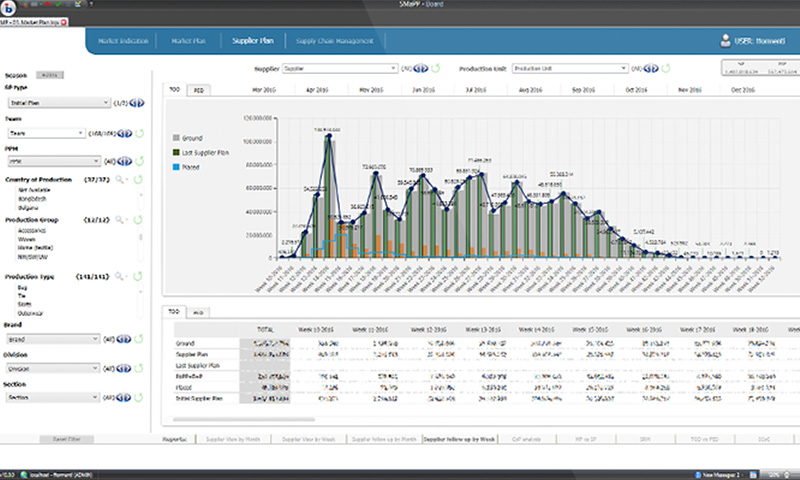This module will introduce you to various philosophies and theoretical concepts of management with a focus on 21st century developments and real-life scenarios that managers face. A range of themes will be explored including; social responsibility, ethics, globalisation, international cultures, technology and entrepreneurship.
This module is designed to introduce you to university life. It will support you in exploring the university environment. It will also introduce you to the wide variety of academic skills needed to succeed at university and will support you in the development of these skills.
This module aims to provide you with an introduction to the general environment in which businesses operate. Through studying this module you will develop an understanding of the contemporary debates on the nature and management of modern enterprises. The module covers internal and external aspects of business – such as people at work, marketing, financial information and operations.
In this module, you will work collaboratively with other students on a project that reflects an area of shared interest relating to the broad themes of Business, Law or the Social Sciences. You will have the opportunity to work as a small team to devise, design and plan a project relating to a topic of shared interest. In many aspects of life and work, teamwork and collaboration are the norm to solve real world-problems. This group-based project will allow you to develop a range of skills, including leadership skills, time-management, negotiation, communication, creativity, problem-solving and critical thinking skills. By investigating and responding to a complex question, challenge or problem, you and your group will acquire a deeper knowledge of your topic. The module will conclude with a conference, where your group’s project will be presented to the other groups in your class.
This module offers an introduction into branding, advertising, influencer marketing, video marketing and digital marketing communications. Communication is a broad and multi-disciplinary topic which is common to all of these, and throughout this module students will explore different areas of communication theory, including semiotics, as well as branding theory and advertising.
The module is sectioned into two parts. The first part of the module aims to provide students with a practical understanding of the digital business, the need for digital transformation to support innovation and to continue to have a competitive advantage in the marketplace. The various digital business models are explored along with the importance of digital capability. The second part of the module introduces students to the information systems that support todays digital business. A range of information systems are examined including those that support the operations of the digital business, through to its sales and marketing functions. The importance big data and business intelligence are introduced before examining how today’s digital business can apply business intelligence to develop new products and services long with improvements in efficiency and its business processes.
This module provides students with knowledge of frameworks to understand the importance of marketing and digital marketing tools within the business environment. Activities will provide students with the opportunity to understand the marketing concepts an organisation will need to use in order to compete in today's dynamic market place. This module will further engage students towards developing a clear understanding of some these key issues and apply concepts and techniques discussed during the sessions and through independent academic research.
Website Development and Design will examine the creation and management of a website, as well monitoring and measuring its performance. This includes measurement of digital marketing activities such as Search engine Optimisation (SEO), Keyword analysis, Marketing Mix, Competitor Analysis, developing a buyer persona, Social Media Integration, Email Marketing, Online Advertisements and Key performance indicators (KPIs). Students will gain practical experience of using the latest techniques for measuring and analysing digital performance.
This module aims to provide students with an understanding of services marketing principles and relationship marketing and their applications in the real world. The module will provide an overview of theories and models of service quality and customer satisfaction and critically examine the key debates and current thinking. It will provide the student with an understanding of the complexities associated with defining and measuring relevant concepts and the steps taken in the process of developing a customer-oriented service provision that applies relationship marketing frameworks to real world situations.
Todays contemporary market spaces are highly competitive and turbulent. It is important that organisations are creative and adopt an innovative approach to marketing, in order to maximise their competitiveness and enhance their capabilities. This module develops an understanding as to what drives innovation and disruption across a range of industries, and the relationship between marketing and innovation. This module will develop your communication and practical skills to cultivate and implement marketing innovations, and develop capabilities. You will explore online and offline tools to support specific innovations
This module will provide the student with understanding market research methods and analysis of data and evaluation of information relevant to Marketing planning and financial decisions. It will provide the student with an understanding of the complexities of a Marketing plan and steps taken in developing a plan for a range of business organisations. The module will develop students understandings of the processes and methods used in pricing, monitoring, implementing, and controlling a Marketing plan.
The aim of this module is to develop students’ understanding of management and leadership principles, and to explore the influence various leadership and management approaches have on key Human Resource Management functions, including Change Management. Through the study of emerging leadership concepts, such as super-leadership, students will develop an appreciation for the development of self as a method to support others in their development. Reflective practice underpins the module to support students in assessing their own approach to learning and development.
The Consumer Behaviour and the responsible marketer module will address a wide range of marketing and psychological theories and concepts which help marketers to explain and analyse both consumer behaviour and online consumer behaviour. The module offers an insight into how consumers consider, buy and experience products and services. It will also explore ethical and social responsibility issues, assessing the techniques used by organisations to influence and persuade consumers to purchase. Discussions and debate around the responsibility of marketers will address contemporary cultural and social issues in marketing.
Marketing and Digital Strategy explores the complexities of a strategic marketing approach that every organisation needs to employ to develop and sustain competitive advantage. A critical appreciation of the external and internal elements that influence strategic decisions and how organisations create and sustain competitive advantage. The module expands the knowledge and understanding of traditional and digital marketing. A critical understanding of the strategic positioning of products and brands offline vs online. It will also assess the role of marketing from a strategic perspective.
This module will examine the role of social media, search engine and freelance marketing in targeting and communications. The module will also examine the strategic and practical application of social media and freelance platforms, with particular focus on competitor analysis. Students will gain exposure to digital marketing tools, and develop capabilities in Search Engine Optimisation (SEO), Keyword Research, Search Engine Marketing (SEM) and Content Marketing. Students on this module will benefit from guest speakers who will share their knowledge and experience in the field of social media and freelance marketing.
The Professional Project capstone module is an independent study unit. Students will be able to draw together learning form their previous subjects, focusing on their key strengths, in the production of a business artefact. Alongside the artefact students will develop a written critical reflection, which is designed elucidate their rational for choice of artefact and reflect on the process of its production and dissemination.


/prod01/wlvacuk/media/departments/digital-content-and-communications/images-18-19/iStock-163641275.jpg)
/prod01/wlvacuk/media/departments/digital-content-and-communications/images-2024/250630-SciFest-1-group-photo-resized-800x450.png)
/prod01/wlvacuk/media/departments/digital-content-and-communications/images-18-19/210818-Iza-and-Mattia-Resized.jpg)
/prod01/wlvacuk/media/departments/digital-content-and-communications/images/Maria-Serria-(teaser-image).jpg)
/prod01/wlvacuk/media/departments/digital-content-and-communications/images-2024/241014-Cyber4ME-Project-Resized.jpg)
/prod01/wlvacuk/media/departments/digital-content-and-communications/images-18-19/210705-bric_LAND_ATTIC_v2_resized.jpg)





